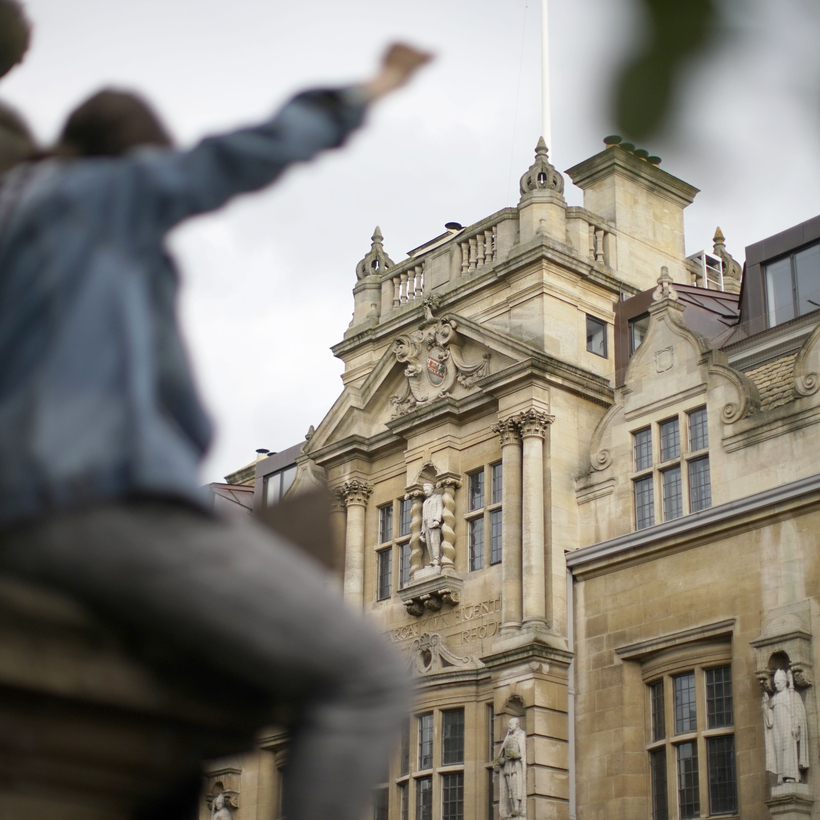Oxford is caught between a statue and a hard place. On the one hand, the ancient university—older, remember, than the Aztec empire—is a place of great tradition: a honey-stoned, gown-sporting, river-punting institution with historic conservative benefactors and deeply felt rituals. On the other, it is a far-left, radical educational hothouse where dissenters are pilloried at dawn.
Last week, on Oxford’s winding main street, these two competing worlds collided. The clash centered on a statue of Cecil Rhodes—a historic donor to Oriel College and a controversial colonialist—which has become the subject of protests in recent years. Homemade banners have been flying below him since 2015, when the Rhodes Must Fall campaign denounced the monument as a totem of Oxford’s imperialist links.


